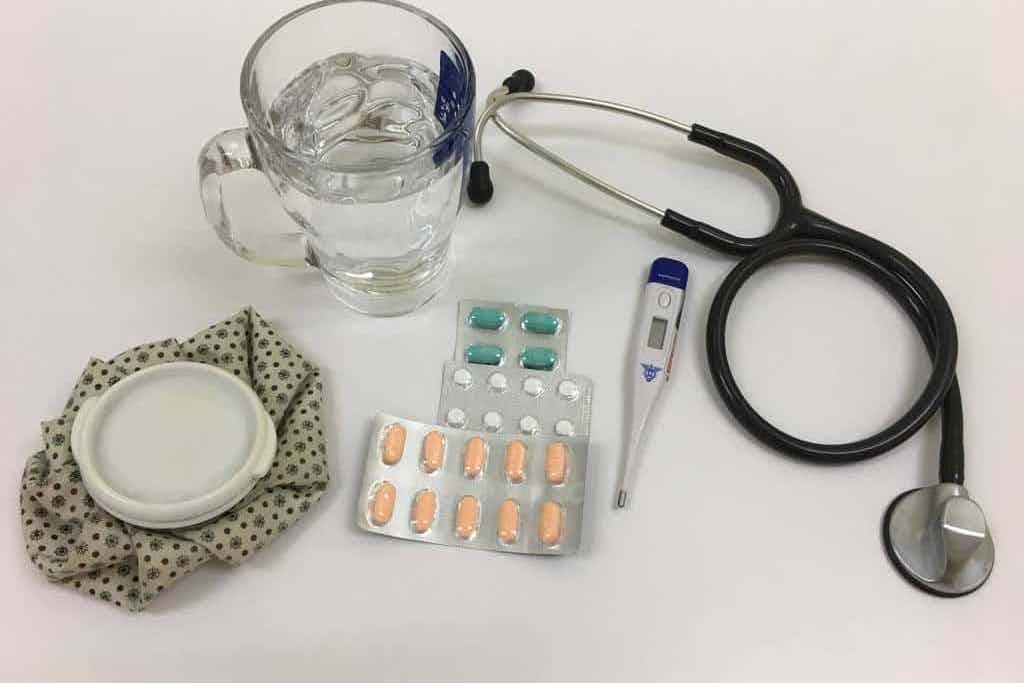Going into autumn and winter normally means cosy nights in and festivities to look forward to. However, winter is also cold and flu season. As more people tend to be inside together, it can mean that colds, viruses, and the flu spread more quickly.
Catching a cold in winter can be unpleasant. Sore throat, tickly cough, throbbing headache. These are common symptoms of colds. Whilst not life-threatening, they can make you feel unwell and affect your day-to-day life for several days.
Getting ill in winter may seem inevitable, but there are some ways you can avoid it. From improving your immune system to planning your social interactions, you can aim to reduce your chances of catching a cold.
Why do I always get ill in winter?
You may find you get ill each winter; this is little to do with the colder weather, even if it feels like it. Many viruses and strains of flu circulate in winter due to people spending more time together indoors. Increased close contact means viruses spread more easily.
Your immune system may also not be as strong as it could be, meaning your body may lack the resources to fight off infections and viruses.
What is the difference between colds and the flu?
Colds and the flu can have similar symptoms at the start, but they are very different. Flu symptoms are more severe and typically last much longer than the common cold. Flu can also develop into more serious respiratory conditions.
Flu symptoms include fever, aching joints, headaches, and a dry cough.
Cold symptoms include runny nose, tickly cough, headache, and a sore throat.
The main difference between colds and the flu is the recovery time. Recovering from a cold typically takes a few days, whereas recovering from the flu can take up a few weeks.
Can supplements prevent you getting ill in winter?
There is some evidence people with low vitamin D levels can benefit from vitamin D supplements. A study showed that Vitamin D reduced the chance of developing respiratory conditions. However, taking lots of supplements is not a replacement for a well-balanced diet and an active lifestyle. If you are worried about any vitamin deficiencies, speak to your GP before taking supplements.
Make sure you’re up to date with vaccinations
If you're over 65 or have an underlying condition, you are entitled to a free seasonal flu jab from the NHS. For those who aren't eligible for a free flu jab, you can get one at your local pharmacy for a small fee to help keep you protected from this year's strain of flu. Also ensure you're up to date with any other vaccinations, especially if you're planning to travel to other countries.
Avoid being in close proximity to other people
Germs and viruses spread when people are in close contact. Limiting the close contact you have with other people will reduce your chances of getting ill. You don't have to hide away in your home all winter, though! Instead, you should be sensible with basic hand hygiene and how you interact with others. Viruses and germs spread through droplets in the air, so it makes sense to avoid crowded spaces at peak times. Aim to keep a distance of a few feet away from those you don't live with. If anyone you know has been ill recently, try to avoid seeing them until they are better.
Germs typically spread through touch. Viruses and germs can live on surfaces for long periods. Wash your hands after touching surfaces such as door handles, lift buttons, and stair rails, to reduce the chance of transferring germs to your mouth or nose.
Wash your hands often and avoid touching your face, especially your eyes, nose, and mouth after touching surfaces.
Add more green, leafy vegetables to your diet
What you eat and drink can have a positive or negative impact on your health. Whilst one specific food won't boost your immune system, adding in a wide variety of vegetables and fruit will benefit you in the long term. Dark, leafy green vegetables such as spinach, kale, and cabbage are loaded with immune-supporting vitamins.
Add regular exercise into your lifestyle
Getting exercise not only boosts your mood, but it also boosts your immune system. Regular exercise improves your overall cardiovascular health and increases your lung capacity. It also contributes to better circulation, ensuring that your blood and nutrients get to where they need to be.
Aim to get enough sleep each night
Getting enough sleep is a vital component of your overall wellness. Sleep ensures that your body can recover from the day's activities. When your body isn't able to repair its cells, it can struggle to fight off illnesses in the long term.
If getting to sleep is difficult for you, there are some simple changes you can make. Routine is vital for good sleep. Aim for a consistent bedtime each night, and aim to get up at the same time each morning. Avoid drinking caffeinated drinks and alcohol before bed as these are well-known for disturbing sleep.
Seek medical guidance if you’re unsure
Most colds and flus will go away in a short period. But if you are ill for more than a couple weeks, you seek medical guidance. Your local pharmacy or GP can offer advice on what precautions and treatments to follow.
In summary, catching a cold or the flu in winter isn’t nice. Prevention is better than cure here, so it’s worth taking some simple precautions. Adopting a healthy lifestyle reduces your chances of catching a cold or helps you recover more quickly.






